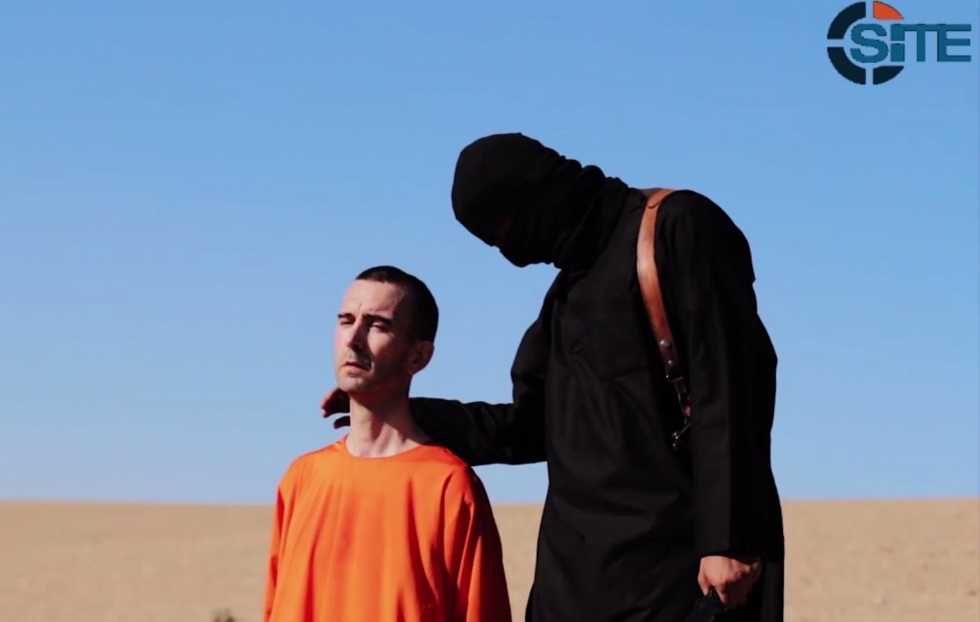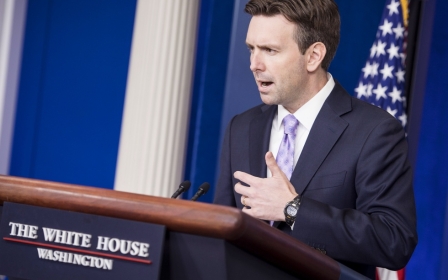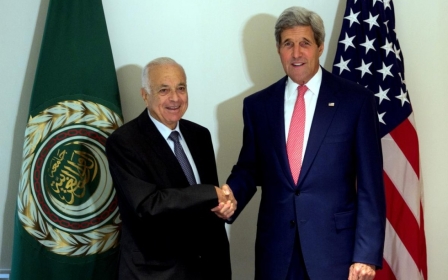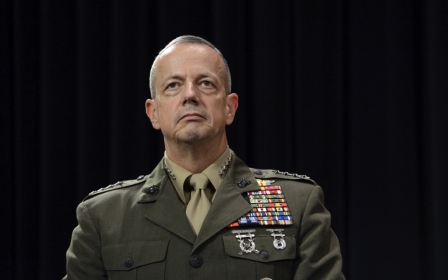IS video claims beheading of British hostage

The Islamic State (IS) militant group claimed Saturday it beheaded British aid worker David Haines, in what would be the third such execution in recent weeks, after two US journalists were killed by the militants.
The group released a video purportedly showing a masked militant beheading Haines.
The two-minute-27-second video titled "A Message to the Allies of America" blames British Prime Minister David Cameron for joining forces with the United States, which has said it is at "war" with the militants and launched air strikes against them in Iraq.
The video opens with a clip of Cameron describing the British strategy of working with the Iraqi government to help arm Kurdish fighters against "these brutal extremist militants," and to offer aid, diplomacy, and military help to fight IS.
Haines then appears, dressed in an orange jumpsuit, and identifies himself before calmly explaining that he is paying the price for Cameron's policy.
"You entered voluntarily into a coalition with the United States against the Islamic State, just as your predecessor Tony Blair did, following a trend amongst our British prime ministers who can't find the courage to say no to the Americans," the executioner says in the video.
The militant, who may be the same man as in the previous videos, told Britain the alliance will "accelerate your destruction" and will drag the British people into "another bloody and unwinnable war."
At the end of the clip, he also threatens to execute another captive, identified in a caption by name as another British citizen.
Scottish-born Haines, 44, was taken hostage in Syria in March 2013 and was threatened in a video released this month depicting the beheading by an IS militant of the US journalist Steven Sotloff, who also holds an Israeli passport.
Haines had been working for the Agency for Technical Cooperation and Development (ACTED), an international relief charity, and was previously involved in humanitarian work in the Balkans, parts of Africa and elsewhere in the Middle East.
Sotloff and fellow US journalist James Foley had also been kidnapped in Syria. IS released a video claiming Foley's execution on August 19, and Sotloff's two weeks later on September 2.
US 'stands shoulder to shoulder with' UK
Meanwhile, Cameron vowed Britain would do all it could to catch the killers, and US President Barack Obama offered American support for its "ally in grief".
The British premier will chair a meeting of the government's emergency Cobra committee early Sunday in response to the online video.
Cameron called the attack "a despicable and appalling murder of an innocent aid worker" and "an act of pure evil."
"We will do everything in our power to hunt down these murderers and ensure they face justice, however long it takes," he said in a statement.
Obama slammed the latest attack as "barbaric" and said the US "stands shoulder to shoulder tonight with our close friend and ally in grief and resolve".
Britain's Foreign Office has now confirmed the veracity of the video.
Former head of the British Army Richard Dannatt on Sunday piled pressure on Cameron to let the country's military join a planned assault against IS, announced by Obama this week.
"What we absolutely need to do is not be cowed in any way by yet another foul murder of a hostage," he told Sky News.
"We can support them (the US) to confront, attack and defeat the Islamic State jihadi fighters ... and make sure this cancer is removed from the region before it spreads more widely."
But Cameron will be wary of playing into the hands of the captors by escalating tensions.
As part of efforts to build up local support for action, US Secretary of State John Kerry on Saturday sought to bolster relations with Egypt during meetings with its leaders.
Egypt's formidable army is unlikely to take part in a military coalition against IS, but the country boasts the prestigious Sunni Muslim authority Al-Azhar, which Kerry said would fight back against the Islamic State's use of the religion.
Kerry takes his push to forge a broad coalition against Islamic State jihadists to France on Sunday, on the eve of an international conference in Paris on peace and security in Iraq.
US aircraft have carried out more than 160 strikes in Iraq since early August, the US Central Command said Saturday.
French connection
Meanwhile, France on Sunday urged international action against IS militants.
"The heinous killing of David Haines is yet another demonstration of why the international community must mobilise against (the Islamic State), a cowardly and abject organisation," the French presidency said in a statement.
President Francois Hollande's office also expressed France's solidarity with Haines' family and Britain.
Around 930 French citizens or residents, including at least 60 women, are either actively engaged in militancy in Iraq and Syria or are planning to go there, the French interior minister said Sunday.
In an interview with Le Journal de Dimanche weekly, Bernard Cazeneuve said: "930 French citizens or foreigners usually resident in France are today involved in jihad in Iraq and Syria."
According to the minister, "350 are on the ground, including 60 women. Around 180 have left from Syria and 170 are en route for the zone."
In addition, some 230 people are looking to head to areas held by militants. Added to this total of 930, an estimated 36 have already died out there, said Cazeneuve.
He announced that "at least 70" people had been prevented from leaving after authorities received around 350 alerts. This included around 80 minors and 150 women.
France has created a law aimed at stopping aspiring militants from travelling, which includes a ban on foreign travel of up to six months for individuals suspected of radicalisation and gives authorities powers to temporarily confiscate and invalidate their passports.
In a recent parliamentary report, France had previously estimated that 950 suspected of engaging in militancy.
New MEE newsletter: Jerusalem Dispatch
Sign up to get the latest insights and analysis on Israel-Palestine, alongside Turkey Unpacked and other MEE newsletters
Middle East Eye delivers independent and unrivalled coverage and analysis of the Middle East, North Africa and beyond. To learn more about republishing this content and the associated fees, please fill out this form. More about MEE can be found here.




